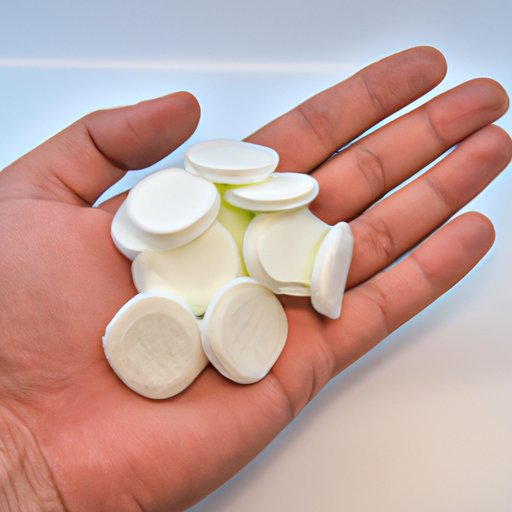
Introduction
Constipation is a common health issue that affects many people and can be caused by a variety of factors, such as a lack of fiber in the diet, dehydration, and lack of exercise. This condition can cause discomfort, bloating, and even lead to more severe health problems if left untreated. The purpose of this article is to provide readers with a comprehensive guide on how to relieve constipation fast by incorporating various methods into their lifestyle.
High Fiber Diet
One of the most effective ways to alleviate constipation is by consuming foods that are high in fiber. High-fiber foods help add bulk to the stool, making it easier to pass through the digestive tract. Foods that are rich in fiber include fruits, vegetables, and whole grains. Some examples of high-fiber fruits and vegetables include bananas, apples, broccoli, and carrots. Whole-grain options, such as oatmeal, brown rice, and whole-wheat bread, are also high in fiber.
It’s important to note that incorporating high-fiber foods into your diet should be done gradually to prevent gas and bloating. Eating too much fiber too quickly can exacerbate constipation symptoms.
Here is a sample high-fiber meal:
- A spinach and kale salad with quinoa, almonds, and feta cheese
- Steamed broccoli
- A piece of whole-grain toast with avocado on top
- A slice of watermelon for dessert
Exercise
Regular exercise can help relieve constipation by promoting bowel movements and improving overall digestive function. Physical activity stimulates the muscles in the digestive tract, helping to move food through the intestines. Examples of exercises that can help alleviate constipation include walking, jogging, cycling, and yoga.
It’s recommended that adults engage in at least 150 minutes of moderate-intensity exercise per week. If you’re new to exercising, it’s best to start slowly and gradually increase the intensity and duration of your workouts.
Hydration
Staying hydrated is essential for maintaining regular bowel movements. Dehydration can cause stool to become harder and more difficult to pass. It’s recommended that adults drink at least 64 ounces of water per day. In addition to water, other fluids, such as herbal tea or fruit juice can also help hydrate the body.
One way to increase your water intake is to carry a water bottle with you throughout the day. Another simple way to boost your hydration is by drinking a glass of water or herbal tea with each meal and snack.
Avoid Certain Foods
Some foods can contribute to constipation and should be limited or avoided altogether. Processed foods, fast food, and fried foods are often low in fiber and difficult to digest, making them more likely to cause constipation. Dairy products can also contribute to constipation, especially if you are lactose intolerant. Foods high in sugar, such as candy and baked goods, can also cause constipation.
Instead, it’s best to focus on whole foods that are high in fiber and easy to digest. Fresh fruits and vegetables, lean proteins, and whole grains are all good choices.
Over-the-Counter Medication
If lifestyle changes aren’t enough to relieve constipation, over-the-counter medications can be used to help promote bowel movements. Laxatives, stool softeners, and suppositories are all options that can be effective in relieving constipation. However, it’s important to speak with a healthcare provider before using any medication, especially if you have any underlying health conditions.
If you are pregnant or breastfeeding, it’s important to speak with your healthcare provider before using any over-the-counter medication to relieve constipation.
Natural Laxatives
Natural remedies can also be used to help relieve constipation. Herbal teas, such as chamomile or peppermint, can help promote bowel movements. Prunes, which are high in fiber and natural laxatives, are also effective in treating constipation. Magnesium supplements can help soften stool and promote bowel movements as well.
It’s important to speak with a healthcare provider before using any natural remedies, especially if you have any underlying health conditions or take any medications.
Conclusion
Constipation can be an uncomfortable and frustrating condition, but it’s typically treatable with lifestyle changes or over-the-counter medications. Incorporating high-fiber foods, regular exercise, and staying hydrated can all help alleviate constipation symptoms. Avoiding certain foods and using natural remedies can also provide relief. Remember to speak with a healthcare provider before using any medications or natural remedies to treat constipation.
Additional resources for constipation relief include consulting with a registered dietitian, a physical therapist, or a healthcare provider if symptoms persist or worsen.




